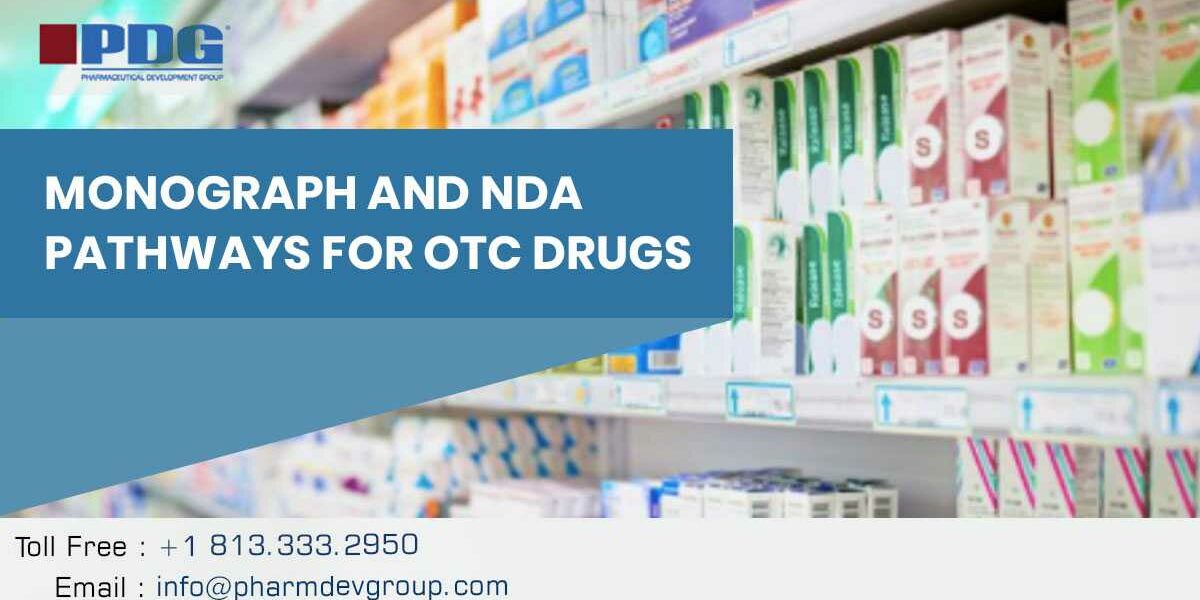Over-the-counter (OTC) drug products are a billion-dollar industry consisting of over one hundred thousand OTC drugs marketed currently. OTC drugs also known as nonprescription drugs are not held in the same class as prescription drugs since they do not have high toxicity requiring practitioner supervision. Similar to prescription drugs, there are FDA drug labeling requirements in OTC drugs. Nonprescription drugs encompass a variety of products including sun screen, hand sanitizer and toothpaste. OTC drugs have two FDA regulatory pathways to bring the product to market. The first is utilization of New Drug Applications (NDA). Drug developers can determine which type of NDA is best suited for their drug, such as Rx-to-OTC switch or Direct-to-OTC. The Rx-to-OTC switch can be a full switch or partial. Unlike prescription drugs, OTC drugs may need consumer studies. The purpose of the consumer study is to assess if the consumer is able to use the product safely and appropriately without the help of a health care provider. The types of consumer studies that may be needed are label comprehension, self-selection, human factors, and actual use. If a drug developer is unsure of which NDA or consumer study is needed, they should consult a regulatory consulting firm experienced in OTC drugs. The second pathway for nonprescription drugs is the Monograph. If a sponsor follows the OTC Drug Monograph exactly, there is no need to go the more intense NDA pathway. When sponsors go the Monograph route, their drug must meet the Generally Recognized As Safe and Effective (GRASE) conditions. Both pathways adhere to FDA drug labeling requirements that contain specific language for nonprescription drugs facts. Due to FDA drug labeling requirements, the nonprescription drug facts label must make it feasible for the consumer to do the following:
- Self-diagnose
- Self-select
- Self-administer
- Know when to stop use
In doing so, the nonprescription drug facts label will advise the consumer of the purpose of the medicine, how to use it, and who should and shouldn’t take the medication. The readability of the label is significant. Additional FDA drug label requirements for font size, spacing, bullets and clearly marked sections are mandated for easily readable labels. Regulations regarding nonprescription drug facts can be found in 21 CFR 201.66. Nonprescription drug facts must include the following information:
- Title – Drug Facts
- Active ingredient(s) – amount in each dosage unit
- Purpose of the product
- Use(s) – indications for the product
- Warnings – when a product should not be used and when appropriate to consult a doctor
- Directions – when and how to take the product
- Other information
- Inactive ingredients – to help consumers avoid certain ingredients or allergic reactions
- Questions or comments
Although both pathways require compliance with good manufacturing practices, there are other differences in the OTC drug regulatory pathways. The NDA pathway is product specific and offers confidential filing. The Monograph pathway is ingredient and category specific but does not offer confidential filing, instead it is public access. Other unique benefits of the Monograph pathway are the limited reporting requirements for adverse reactions, no user fees and most of all, clinical development is not required. Regardless of which pathway is taken, OTC drugs must follow FDA drug label requirements and applying nonprescription drug facts to their labels.
Author Information
Christina Sanchez Miller, MPH has over 20 years of management, biologics, quality assurance and research experience in the medical field. She is a published author in scientific books, papers and has presented at several international conferences. Christina has developed medical applications in the biologics field. Her experience includes operations and consulting in FDA Adverse Event Reporting, FDA Product Deviation Reporting, FDA 483’s, cGTP’s, infection control, certified ISO Class 5, 7, 8 development and maintenance, QIC and auditing.
Pharmaceutical Development Group (PDG) is a global scientific & regulatory consulting firm with extensive experience in the strategic development of drug products, biologics, medical devices, combination products and FDA regulatory affairs. PDG is a pharmaceutical consulting group focusing on NDA regulatory services, nonprescription drug facts labeling, and IND consulting services. PDG is a subsidiary of Biotech Research Group Corporation.
The opinions and statements in this blog are those of the authors and do not necessarily reflect those of PDG. This blog is based on personal experience and reviews of information publicly available or identified in other database searches.







